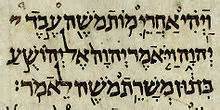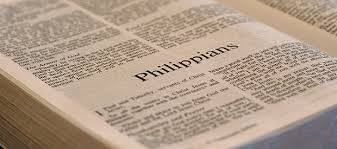 The Second in a Series of Sermons on Ezra-Nehemiah
The Second in a Series of Sermons on Ezra-Nehemiah
I think it fair to say that no one reading this would mention Ezra chapter 2, if asked to identify your favorite chapter in all the Bible. Why is a chapter which contains a detailed list of the family names of the 42,360 returning exiles from Babylon to Jerusalem, included in the Book of Ezra? Why is this list repeated in the Book of Nehemiah (chapter 7). Why does Ezra include an exact count of all the bowls, basins, censers, and other implements to be used in the rebuilt Jerusalem temple, which were to be brought back to Jerusalem, years after they had been taken from the temple by Nebuchadnezzer? Why all the detail? Ezra is a priest, not an accountant. He is not a store clerk doing inventory. Well, we will address the question of why such detail is important as we turn to the balance of Ezra chapter one (vv. 5-11) and all of Ezra chapter 2, our text.
In the opening four verses of Ezra, we read of a decree issued in 538 BC by the Persian king Cyrus, declaring that those Jews who had been held captive in Babylon (under the reign of Nebuchadnezzar, whose empire Cyrus had defeated the previous year) were being sent home by Cyrus to restore and rebuild their capital city (Jerusalem) and its temple, identified by Cyrus as “the house of God.”
In the first year of Cyrus king of Persia, that the word of the Lord by the mouth of Jeremiah might be fulfilled, the Lord stirred up the spirit of Cyrus king of Persia, so that he made a proclamation throughout all his kingdom and also put it in writing: “Thus says Cyrus king of Persia: The Lord, the God of heaven, has given me all the kingdoms of the earth, and he has charged me to build him a house at Jerusalem, which is in Judah. Whoever is among you of all his people, may his God be with him, and let him go up to Jerusalem, which is in Judah, and rebuild the house of the Lord, the God of Israel—he is the God who is in Jerusalem. And let each survivor, in whatever place he sojourns, be assisted by the men of his place with silver and gold, with goods and with beasts, besides freewill offerings for the house of God that is in Jerusalem.”
Several things should jump out to us as we read this decree from the Persian king. The first is that Erza refers to several prophecies from Jeremiah, which foretold of Israel’s exile and return to the land. Last time, we considered several similar prophecies from the prophet Isaiah, but it is important to consider the remarkable prophecy mentioned by Ezra and found in Jeremiah 25:11–12. Jeremiah’s prophetic ministry took place from about the time of Josiah’s reform in 620 BC (and recounted in 2 Chronicles 34) until the fall of Jerusalem to the Babylonians in 587. Through the prophet Jeremiah, YHWH told his people, “this whole land shall become a ruin and a waste, and these nations shall serve the king of Babylon seventy years. Then after seventy years are completed, I will punish the king of Babylon and that nation, the land of the Chaldeans, for their iniquity, declares the Lord, making the land an everlasting waste.” A similar prophecy is found in Jeremiah 29:10. “For thus says the Lord: When seventy years are completed for Babylon, I will visit you, and I will fulfill to you my promise and bring you back to this place.” Cyrus’ decree in 538 BC, indicates that the seventy-years of Israel’s predicted exile are now blessedly over. God’s people will be set free, and will directed by a pagan king to return to the promised land in what amounts to a second Exodus. They will even be given the support necessary to rebuild.
To read the rest of this sermon, Click Here
 Sunday, September 11, 2016 at 03:17PM
Sunday, September 11, 2016 at 03:17PM  Heaven in Pop Culture
Heaven in Pop Culture








